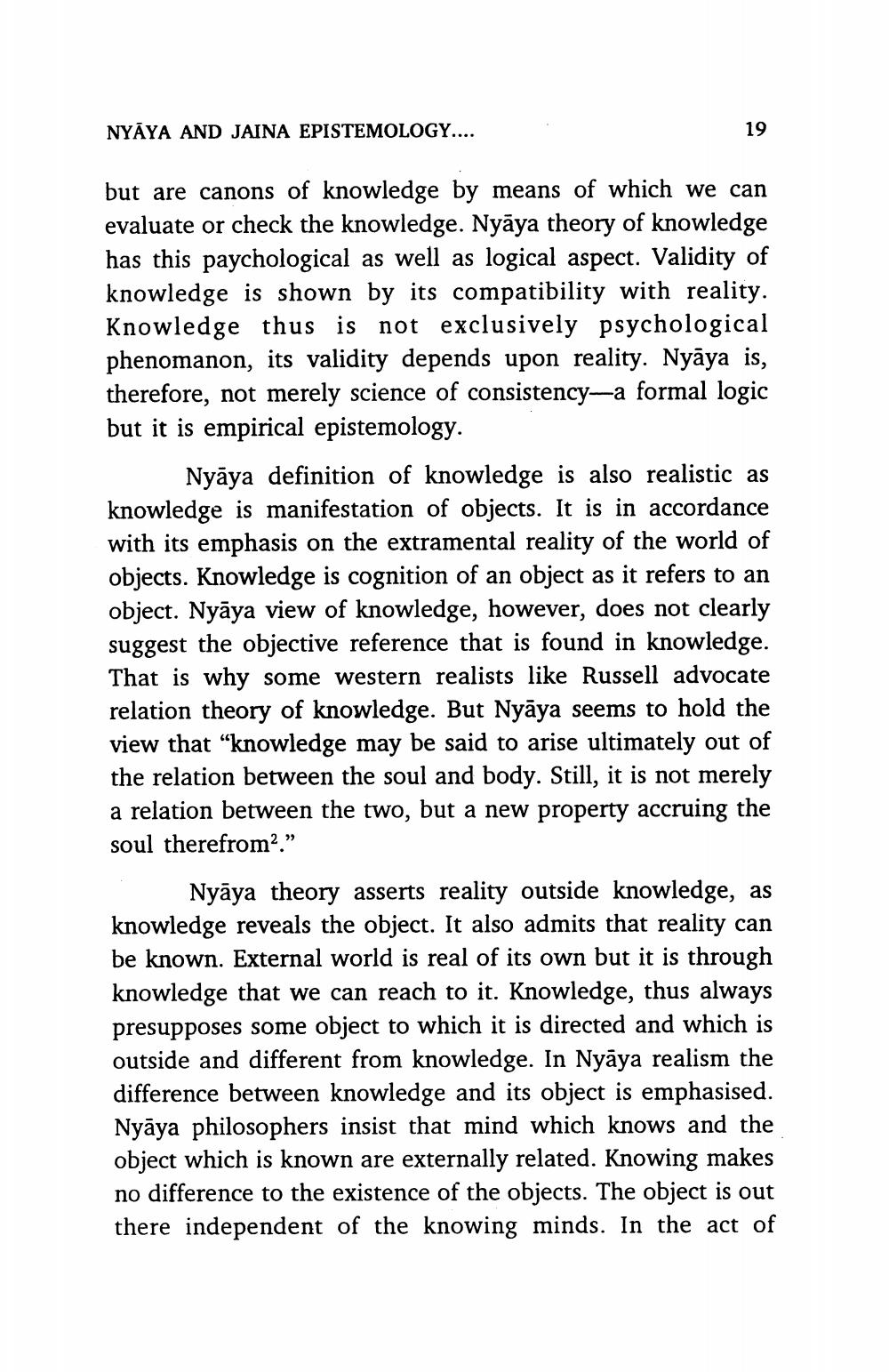________________
NYĀYA AND JAINA EPISTEMOLOGY....
19
but are canons of knowledge by means of which we can evaluate or check the knowledge. Nyāya theory of knowledge has this paychological as well as logical aspect. Validity of knowledge is shown by its compatibility with reality. Knowledge thus is not exclusively psychological phenomanon, its validity depends upon reality. Nyāya is, therefore, not merely science of consistency—a formal logic but it is empirical epistemology.
Nyāya definition of knowledge is also realistic as knowledge is manifestation of objects. It is in accordance with its emphasis on the extramental reality of the world of objects. Knowledge is cognition of an object as it refers to an object. Nyāya view of knowledge, however, does not clearly suggest the objective reference that is found in knowledge. That is why some western realists like Russell advocate relation theory of knowledge. But Nyāya seems to hold the view that “knowledge may be said to arise ultimately out of the relation between the soul and body. Still, it is not merely a relation between the two, but a new property accruing the soul therefrom.”
Nyāya theory asserts reality outside knowledge, as knowledge reveals the object. It also admits that reality can be known. External world is real of its own but it is through knowledge that we can reach to it. Knowledge, thus always presupposes some object to which it is directed and which is outside and different from knowledge. In Nyāya realism the difference between knowledge and its object is emphasised. Nyāya philosophers insist that mind which knows and the object which is known are externally related. Knowing makes no difference to the existence of the objects. The object is out there independent of the knowing minds. In the act of




